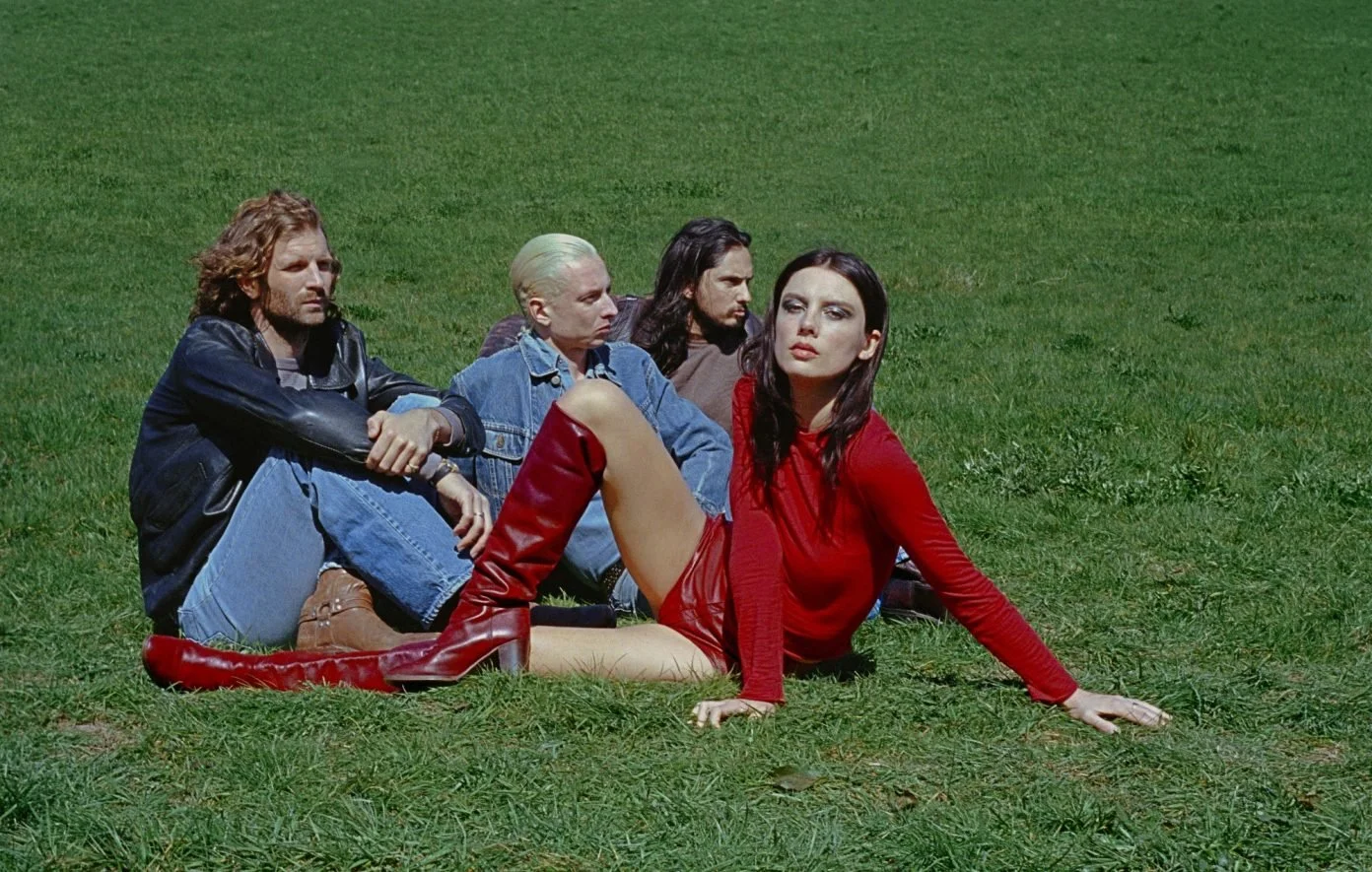Wolf Alice is as Confident as Ever in ‘The Clearing’
Wolf Alice. Photo by Rachel Fleminger Hudson.
English rock band Wolf Alice is no stranger to theatricality. From the release of their 2015 debut album, My Love Is Cool, to their UK Platinum record, “Don’t Delete The Kisses,” the quartet has carefully crafted their aesthetic, often dropping music videos reminiscent of short films and pushing the boundaries of their ever-evolving alternative sound. The band — consisting of lead vocalist Ellie Rowsell, guitarist Joff Oddie, bassist Theo Ellis and drummer Joel Amey — has mastered the art of pairing a feisty presence with delicate reflections on the human experience. Wolf Alice’s fourth studio album, The Clearing, is a genre-blending experiment in nostalgic storytelling that ends in revelations on what it means to be profoundly human.
Like any methodically-told story, The Clearing opens with a prologue-like track, “Thorns,” that presents the album’s thesis in the most self-aware way possible: “I must be a narcissist / God knows that I can't resist / To make a song and dance about it / Maybe I'm a masochist,” Rowsell sings in the chorus. But in the end, she decides to screw it and prepares to bare the most imperfect parts of herself: “The sun goes down, the curtain lifts / And I sing a song.”
If said song is the proceeding track and lead single, “Bloom Baby Bloom,” I would argue Rowsell is more of a visionary than a “narcissist” or “masochist.” It’s as if the band does a complete 180 from “Thorns,” trading a mournful piano chord progression and atmospheric background for a staccato melody and tom-heavy drum beat. Most of the track is raunchy and brash, with Rowsell belting, “Look at me trying to play it hard / I’m so sick and tired of trying to play it hard” in the pre-chorus, anger oozing from her impassioned inflection. Yet in the chorus, as if realizing she doesn’t have to “play it hard,” the melodies turn major and the vocals more serene as she dares listeners to “Watch me, yeah, you’ll see just what I’m worth” and postulates that “Every flower needs to neighbor with the dirt.”
Watch the music video for “Bloom Baby Bloom” on YouTube.
This theme of rejecting normativity and embracing flaws is omnipresent throughout The Clearing, though it plays different roles as individual tracks take on lives of their own. For instance, where “Bloom Baby Bloom” is a bombastic, self-assured anthem, “Play It Out” is a demurely-delivered affirmation of womanhood. The arpeggiating piano line that drives the song’s four minutes sounds like a lullaby, immediately giving it undertones of motherhood. Yet Rowsell is quick to contrast that association, instead asking, “When my body can no longer make a mother of me / Will I change my notion of time?” and asserting, “I wanna age with excitеment / Feel my world expand / Go grey and feel delighted / Don’t just look sexy on a man.” It’s this steadfast aplomb that adds light to every corner of the record, and the song’s final lyric — “In sickness and good health, I promise to love and cherish myself” —is simply the cherry on top.
Steeped with classic rock influences, The Clearing also evokes nostalgic sounds to relay its timeless messages. “Bread Butter Tea Sugar,” for example, is glam rock at its finest. With its ascending major chords and bouncy piano and guitar melodies, the effervescent track would not be out of place on a Queen record; I can almost hear Freddie Mercury singing, “No dish without soup / Bread without butter / If it’s bad for me, good / I feel bad suits me better.” There’s also “Leaning Against The Wall,” whose acoustic-heavy production and drawling vocals are reminiscent of a Mazzy Star song.
“Just Two Girls” is a standout track that just exudes pure whimsy. It’s groovy, it’s ‘80s-inspired and it’s what friendship is all about. Lyrics like, “I was looking at her extensions / She looked so pretty, it was f***in’ offensive / She said, ‘If you want long hair, then just go and get it’ / I said, ‘You're so right’” are refreshing depictions of female friendship in a media landscape where it’s easy to focus solely on the hardships surrounding womanhood. The song is also an example of the glorious synths the band leans on throughout the LP. Whether they’re foundational or sparkling, the bubbly synths in the track truly make it feel like listeners are “Just two girls at the bar / Like two kids at the park.”
After the fervent single “White Horses” gives listeners a taste of Amey behind the mic instead of behind the drums, The Clearing ends with “The Sofa,” another single that brings the album full circle. If “Thorns” is the record’s thesis statement, “The Sofa” is its closing argument. The album’s final lyric, “Hope I can accept the wild thing in me / Hope nobody comes to tame her / And she can be free,” is sung with confident calmness, adding a subtle exclamation point to the end of Wolf Alice’s dissertation on self-acceptance.

